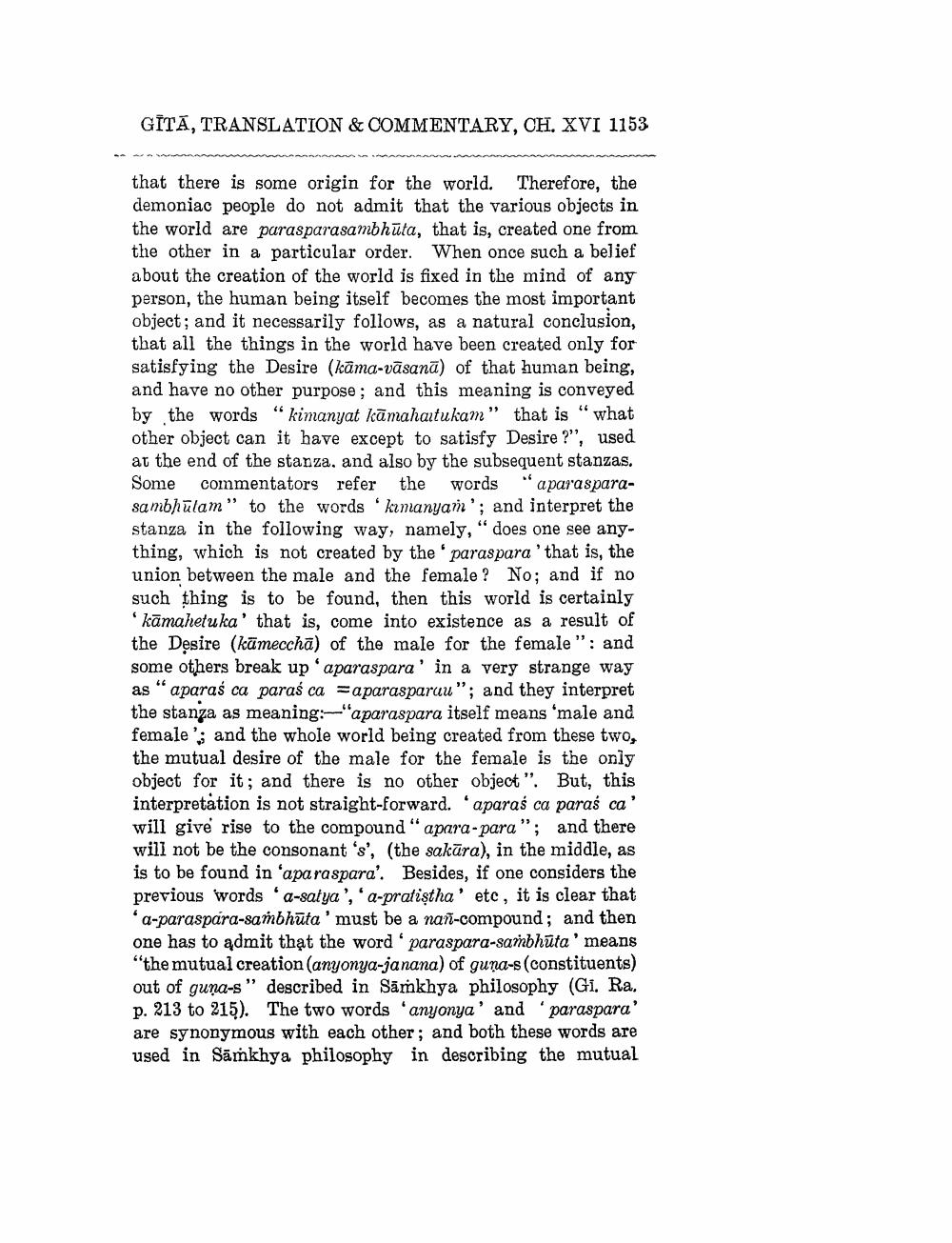________________
GĪTĀ, TRANSLATION & COMMENTARY, CH. XVI 1153
that there is some origin for the world. Therefore, the demoniac people do not admit that the various objects in the world are parasparasambhūta, that is, created one from the other in a particular order. When once such a belief about the creation of the world is fixed in the mind of any person, the human being itself becomes the most important object; and it necessarily follows, as a natural conclusion, that all the things in the world have been created only for satisfying the Desire (kāma-vāsanā) of that human being, and have no other purpose ; and this meaning is conveyed by the words "kimanyat kā mahaitu kam" that is what other object can it have except to satisfy Desire ?", used at the end of the stanza, and also by the subsequent stanzas. Some commentators refer the words "a parasparasambhulam" to the words 'kimanyam'; and interpret the stanza in the following way, namely," does one see anything, which is not created by the paraspara' that is, the union between the male and the female ? No; and if no such thing is to be found, then this world is certainly
kāmahetuka' that is, come into existence as a result of the Desire (kāmeccha) of the male for the female”: and some others break up aparaspara' in a very strange way as " aparaś ca paraś ca =aparasparuu"; and they interpret the stanza as meaning: aparaspara itself means 'male and female', and the whole world being created from these two, the mutual desire of the male for the female is the only object for it; and there is no other object". But, this interpretation is not straight-forward. 'aparaś ca paraś ca' will give rise to the compound " apara-para"; and there will not be the consonant 's', (the sakūra), in the middle, as is to be found in aparaspara'. Besides, if one considers the previous words 'a-satya', 'a-pratiştha' etc, it is clear that 'a-paraspara-saħbhūta' must be a nan-compound; and then one has to admit that the word ' paraspara-sambhūta' means "the mutual creation (anyonya-janana) of guna-s(constituents) out of guna-s " described in Sāmkhya philosophy (Gi. Ra. p. 213 to 215). The two words anyonya' and 'paraspara' are synonymous with each other; and both these words are used in Sāmkhya philosophy in describing the mutual




